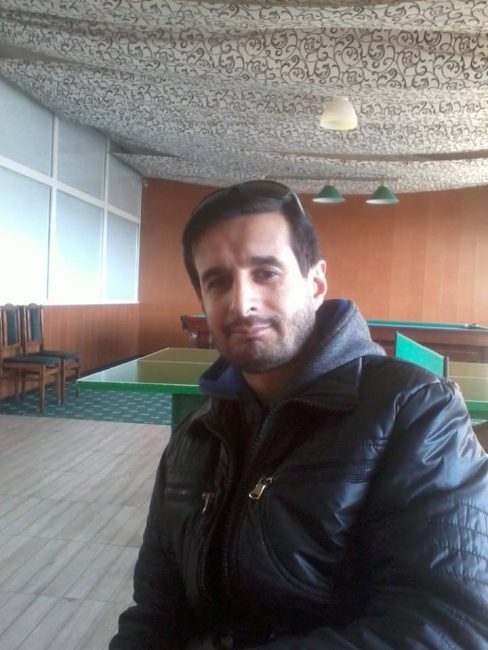 Faced with staggering unemployment and unscrupulous employers, young people in Armenia, including graduates, are forced to work obscene hours for low (or no) pay to get a foot through the door in the country’s labour market.
Faced with staggering unemployment and unscrupulous employers, young people in Armenia, including graduates, are forced to work obscene hours for low (or no) pay to get a foot through the door in the country’s labour market.
[Read in Armenian — Հոդվածը հայերեն կարդացեք]
Twenty-four-year-old Klavdia Yeghiazaryan recently graduated as a dentist from Yerevan State Medical University. Immediately upon graduating, she began to look for work in her chosen field. Knowing perfectly well the state of Armenia’s labour market and not being under any illusions, she looked for a position not as a dentist, but as a dental assistant nurse. However, even this modest goal proved practically impossible for the young specialist.

A dentist-confectioner
Yeghiazaryan applied to four dental clinics in Yerevan who had advertised positions. Each was offering exactly the same working conditions, hours, and even pay.
As a dental assistant, Klavdia would be expected to work for 12 hours a day seven days a week, for just ֏40,000 ($80) a month. And all this in a country where, according to official data, the average income, including in the public sector, is around ֏190,000 ($380) a month. In addition, in order to become even a dental assistant, as a qualified dentist, Klavdia would first have to gain at least one month’s experience.
The most pertinent element of the whole story is that the owners of dental clinics and the dentists themselves refuse to allow young graduates to gain this experience even for free. Gaining experience from a working dentist costs no less than $100 per month, performing all the work of a dental assistant.
Such conditions, and most of all, the rather vague prospects they provide, did not appeal to Yeghiazaryan, and so for the time being, she works with her mother, Rimma Grigoryan, to make cakes and other confectionery.

It is particularly important to mention that at one time, Rimma received state support when she was unemployed, which enabled her to enrol in free courses where she learned how to decorate cakes and cater for banquets. Rimma Grigoryan, it can be said, was lucky. And today she is a popular confectioner, making cakes to order. This provides a reasonable living for the whole family and is also a way for qualified dentist Klavdia to earn some money to live on.
An army of unemployed
The Ministry for Employment and Social Affairs implements a whole host of programmes to help young people and people with disabilities gain employment, through access to courses to help them retrain. There are dozens of such programmes in different areas, but the number of people taking advantage of them compared to the scale of unemployment is disproportionately small.
Even so, state assistance to the army of unemployed is coming to an end, at a time where unemployment is a huge problem. According to official data from the National Statistics Office of Armenia, the unemployment rate reached 19% in the first quarter of 2017, a slight increase over 2016. Lusine Kalantaryan, head of the Statistical Service’s Labour Statistics Department, told OC Media that an average of 50 people apply for every job vacancy, compared to 42 last year.

As a rule, up to 60% of job advertisements for vacancies are of a repeated nature, that is, employers can be trying for up to a year to fill a vacancy. This may appear to be a result of the low wages and slave-like conditions on offer, but employers themselves tend to attribute their inability to fill vacancies to a lack of qualified candidates due to the very low standard of education in Armenia, which they say impacts the quality of applicants.
An employer’s perspective
OC Media approached the owner of one of Yerevan’s larger dental clinics for comment. For obvious reasons, he wished to remain anonymous. He did, however, acknowledge that there is a problem with wages and that violations of the Labour Code do occur.
In his view, the problem is not limited to dental clinics and affects practically every sphere in which wage labour is present.
‘The main reason [for this] is the huge difference between supply and demand. There are plenty of people looking for work. Naturally, an employer seeks to recruit an employee who will work hard and will be content with low wages,’ he says.
Employers often succeed in obtaining such employees, but sooner or later they inevitably run into problems. Such employees generally leave after a few months, having been unable to withstand the slave-like working conditions without days off and not being content with ₽40,000 ($80) a month.
It is precisely this situation which gives rise to the constant turnover of staff and employers’ never-ending search for yet more dental assistants.
‘Scammers’
In all this, there is yet another problem generated by a number of unscrupulous employers commonly referred to as ‘scammers’. Such employers usually offer reasonable working hours and wages in their job advertisements, but with one catch — potential employees must undergo an initial, unpaid probationary period (most often not specified) in order to ‘get to know the skills of the profession’. Such unscrupulous employers are encountered most often by people seeking jobs in the service and catering industry, such as waiters, bartenders, cleaners, security guards, vendors, managers etc. There are people who work unpaid for months for these ‘scammers’.

Arsen Bakhshiyan is 37 years old. In recent years he worked as a waiter in a range of cafés and hotels, having had to change jobs several times. Some of the cafés closed down, but in others, he was fired for not agreeing to work unpaid as a cleaner and porter on top of his job as a waiter. Some jobs he left of his own accord, being unable to endure humiliating conditions and low wages.
His last workplace was a relatively prestigious hotel in the centre of Yerevan. A manager there suggested he work ‘a few days’ for free to find out if he had skills as a waiter, despite his previous experience. Having worked unpaid for a week, Arsen then asked the manager about being taken on as a waiter. Receiving an evasive answer, he worked for another week, all the time honestly putting the tips left by customers into a common pot without receiving a penny back. Receiving another evasive answer from the manager, Arsen asked to at least know the date by which he might be taken onto the hotel staff. The manager again did not answer, later calling him to tell him not to come back.
According to a poll presented on 25 July by the Centre for Sociological Research ‘Sociometer’, in the absence of jobs, around half of young people with university degrees in Armenia say they intend to emigrate. The survey also noted that among young people, the level of unemployment is higher than among older people, and they are more quick to give up in their search.




 2 August 2017
2 August 2017


